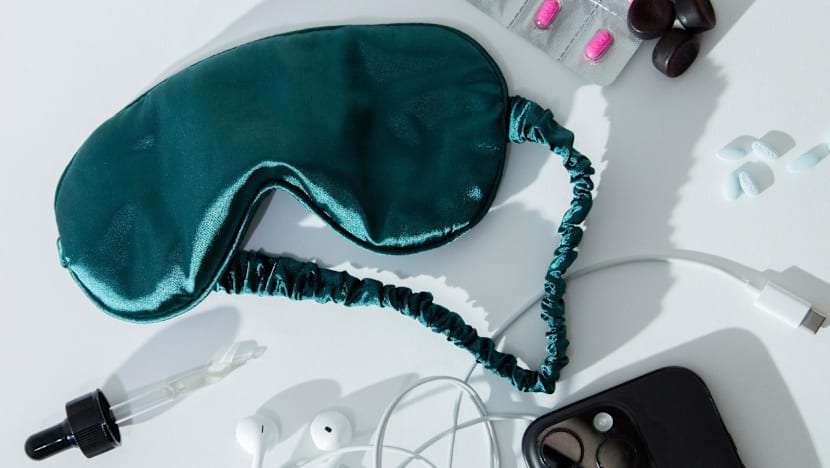Health
Recognizing Sleep Disorders: When to Consult a Doctor

Many individuals struggle with sleep issues, but a significant portion of them remain unaware of when to seek professional help. In the United States, approximately 20 percent of adults suffer from chronic sleep disorders, yet most have never discussed their sleep health with a primary care provider. Dr. Lawrence Epstein, a sleep specialist at Brigham and Women’s Hospital in Boston, emphasizes the need for greater awareness, noting that physicians often overlook sleep-related inquiries during patient consultations.
Recognizing the warning signs of sleep disorders is crucial. While occasional poor sleep is common, consistent challenges warrant attention. Dr. Philip Gehrman, director of the Sleep, Neurobiology and Psychopathology lab at the University of Pennsylvania, outlines three primary indicators that suggest it may be time to consult a doctor.
Challenges in Falling Asleep
Difficulty in falling asleep can manifest as racing thoughts or discomfort while in bed. These symptoms may indicate conditions such as insomnia or restless leg syndrome. Dr. Gehrman notes that while factors like stress or anaemia can contribute, there often isn’t a singular cause for these disorders. A formal diagnosis requires experiencing symptoms for at least three months, yet he encourages individuals to seek help sooner if their situation worsens. Additionally, relying on substances like alcohol or melatonin without medical advice to induce sleep can negatively impact sleep quality and obscure underlying issues, warns Dayna Johnson, an epidemiologist from Emory University Rollins School of Public Health.
Challenges in Staying Asleep
Waking during the night is a common experience, particularly in older adults. Dr. Brienne Miner, a geriatrician and sleep specialist at Yale Medicine, explains that awakenings lasting more than five to ten minutes can signal a more serious issue. In a survey of adults aged 65 to 80 years, common factors for disrupted sleep included bladder issues, anxiety, and pain. Addressing these underlying conditions can significantly improve sleep quality. Other issues, such as parasomnias—unusual behaviours during sleep—can also disrupt rest and potentially lead to injury, according to Dr. Pahnwat Taweesedt, a sleep specialist at Stanford Health Care.
Daytime Drowsiness as a Warning Sign
Feeling sleepy during the day is not unusual, especially after meals or during quiet moments. However, persistent drowsiness during work or while driving can indicate more serious problems. Dr. Epstein points to sleep apnoea, a condition characterized by interrupted breathing during sleep, which often goes unrecognized by patients. Symptoms may include morning headaches and chronic fatigue. In rarer cases, daytime sleepiness may signal narcolepsy, a disorder marked by sudden sleep attacks. Diagnosing narcolepsy can take years, as it often presents subtly.
Preparing for a medical appointment regarding sleep issues can enhance the effectiveness of the consultation. Dr. Taweesedt recommends being specific about sleep problems, whether they involve difficulties falling asleep, staying asleep, or daytime drowsiness. Keeping a sleep diary for two weeks prior to the appointment can provide useful insights, detailing sleep patterns, medications, and lifestyle factors like exercise and caffeine intake. While tracking sleep can be beneficial, it is essential not to become overly fixated on the data, as this may exacerbate anxiety around sleep.
It may also be helpful to bring a partner to the appointment, as they may have observed symptoms that the individual has not noticed. Data from sleep tracking devices can complement the discussion, but users should be aware that consumer technology may not always accurately reflect sleep patterns.
Many health conditions, including obesity, high blood pressure, and Parkinson’s disease, are linked to sleep disorders. Dr. Epstein advises patients to discuss these with their doctors, as well as any medications that might impact sleep.
Ultimately, individuals are encouraged to prioritize their sleep health. Dr. Johnson emphasizes that there is no need for meticulous preparation before seeking help. “Just go,” she advises. “You don’t need to write anything down; you don’t need to do anything in advance.”
-

 Business5 months ago
Business5 months agoKenvue Dismisses CEO Thibaut Mongon as Strategic Review Advances
-

 Lifestyle4 months ago
Lifestyle4 months agoHumanism Camp Engages 250 Youths in Summer Fest 2025
-

 Sports4 months ago
Sports4 months agoDe Minaur Triumphs at Washington Open After Thrilling Comeback
-

 Sports5 months ago
Sports5 months agoTupou and Daugunu Join First Nations Squad for Lions Clash
-

 Top Stories5 months ago
Top Stories5 months agoColombian Senator Miguel Uribe Shows Signs of Recovery After Attack
-

 World5 months ago
World5 months agoASEAN Gears Up for Historic Joint Meeting of Foreign and Economic Ministers
-

 Health4 months ago
Health4 months agoNew Study Challenges Assumptions About Aging and Inflammation
-

 Business5 months ago
Business5 months agoOil Prices Surge Following New EU Sanctions on Russia
-

 Entertainment4 months ago
Entertainment4 months agoDetaşe-Sabah Violin Ensemble Captivates at Gabala Music Festival
-

 Entertainment4 months ago
Entertainment4 months agoBaku Metro Extends Hours for Justin Timberlake Concert
-

 Top Stories5 months ago
Top Stories5 months agoRethinking Singapore’s F&B Regulations Amid Business Closures
-

 Business5 months ago
Business5 months agoU.S. House Approves Stablecoin Bill, Sends to Trump for Signature









